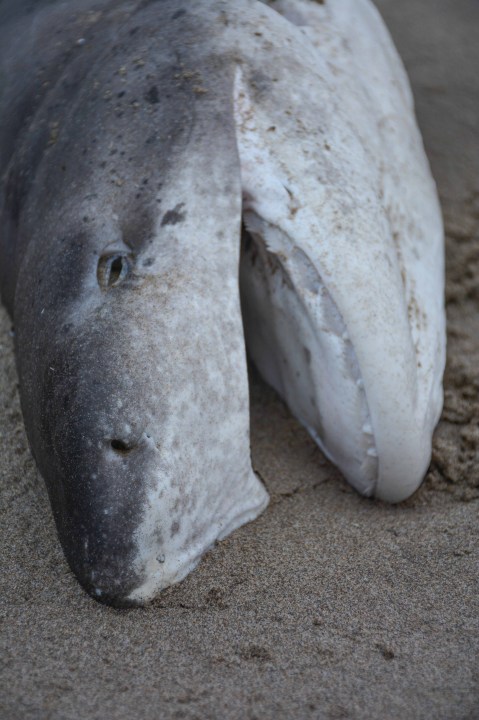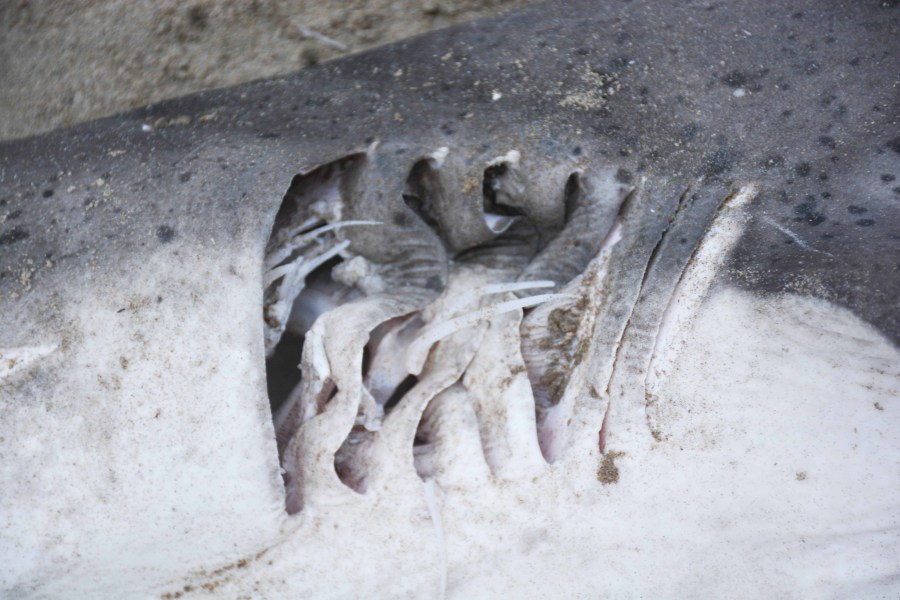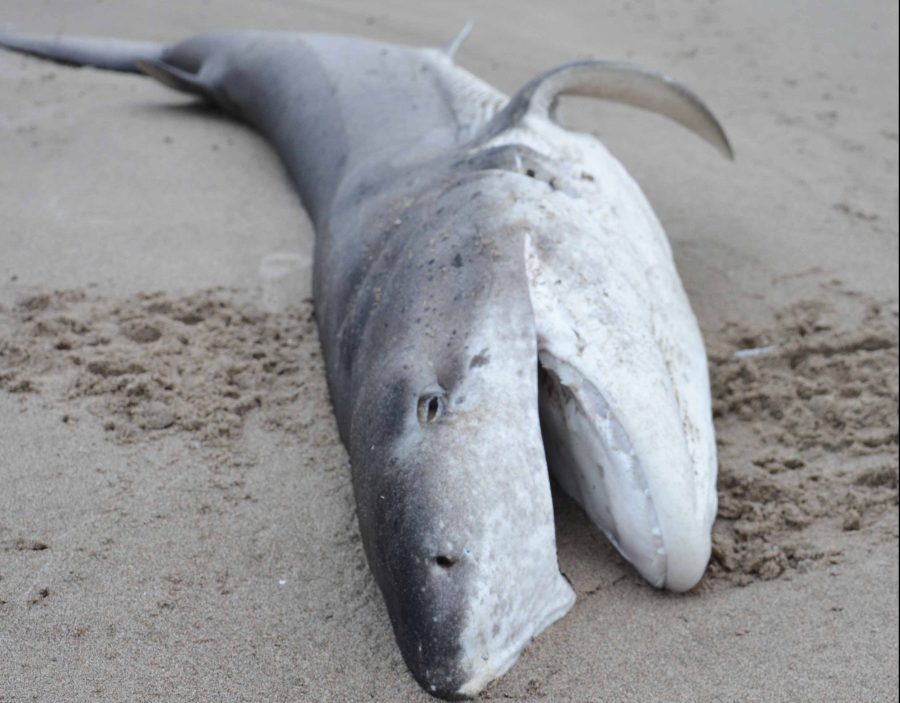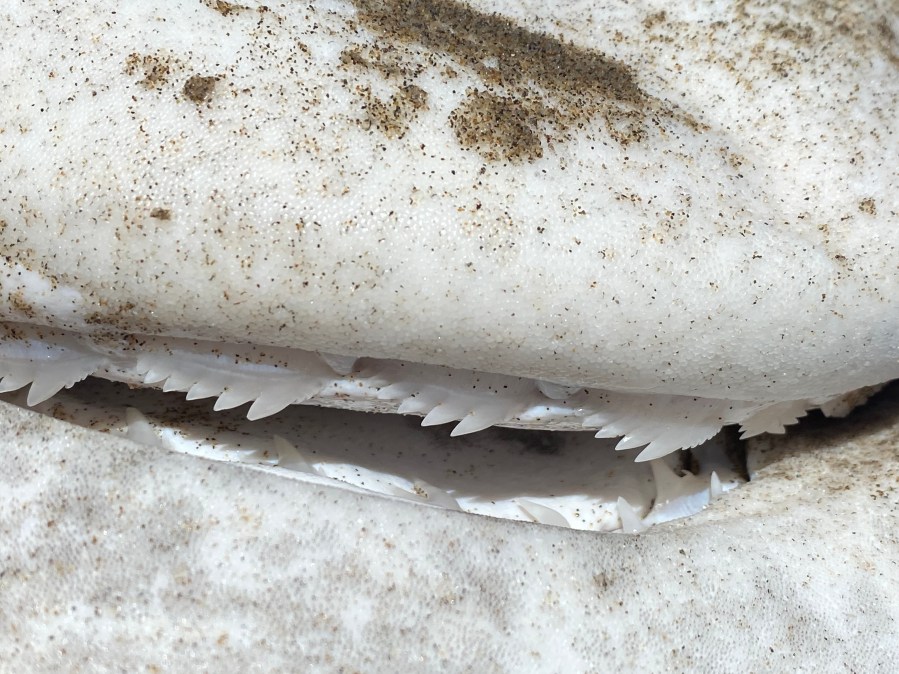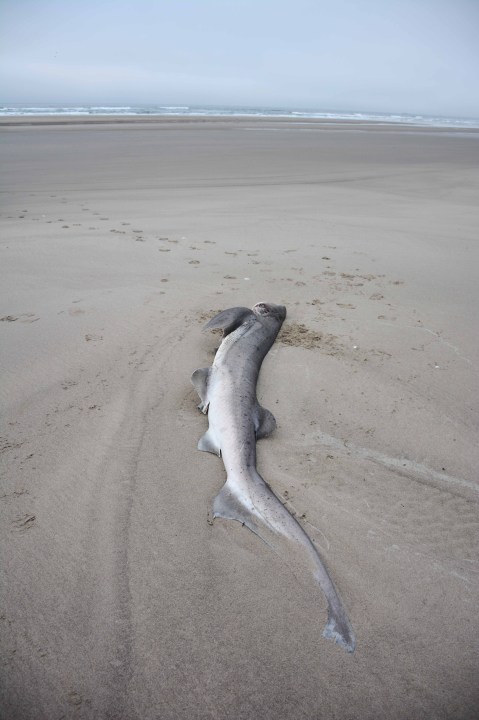PORTLAND, Ore. (KOIN) – An 8.7-foot dead shark that washed ashore south of Cannon Beach Sunday will serve as an educational tool for researchers at Oregon State University, the Seaside Aquarium said.
The female broadnose sevengill shark died before washing ashore, the aquarium said, but was still in remarkable shape.
When the tide was low enough at Arcadia Beach State Park Monday, staff from the aquarium recovered the 120-pound shark. It will be frozen and used by the university for ongoing research.
The broadnose sevengill shark is one of 17 shark species that can be found off the Oregon Coast. These sharks are known for their aggressive behavior when feeding, but there has not been a documented attack by a broadnose sevengill shark on a human along the Oregon Coast.
Worldwide, this shark species has only been responsible for five attacks on humans since the 17th century. None of the attacks were known to be fatal.
“Though the jury is still out on that one since human remains have been found in the stomachs of some sevengills,” the Seaside Aquarium wrote in a press release.
The broadnose sevengill shark is unique in that it has seven gills, while most shark species only have five gills. They can be found in ocean depths of up to 400 feet. Smaller sevengills feed on fish and squid, but the larger sharks prey on marine mammals and are known to hunt in packs.

